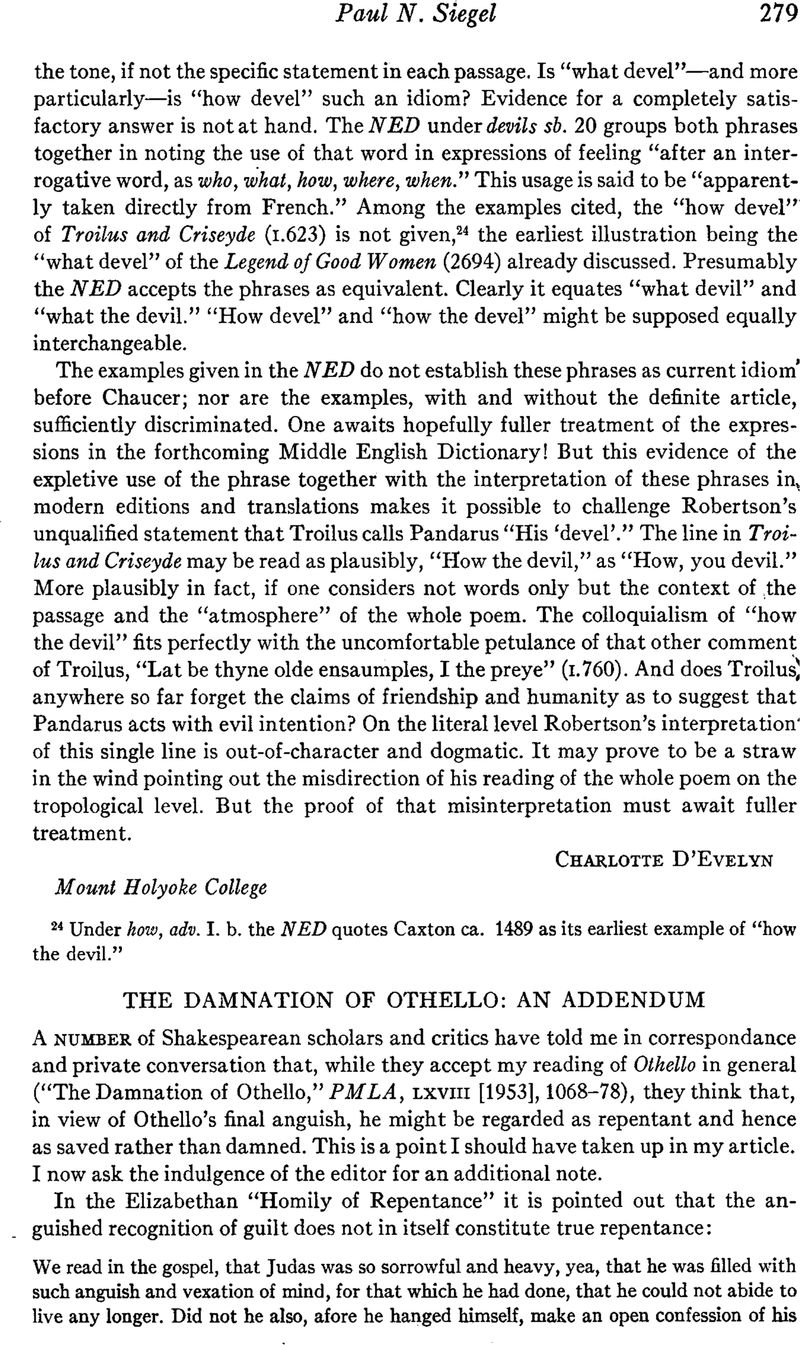No CrossRef data available.
Published online by Cambridge University Press: 02 December 2020

1 Certain Sermons or Homilies Appointed to be Read in Churches in the Time of the Late Queen Elizabeth (Oxford Univ. Press, 1832), p. 490. The use of Judas as an instance of repentance without faith is not new with the homilies. As Professor Roy W. Battenhouse has called to my attention, Calvin quotes Biblical commentators who do the same (Institutes of the Christian Religion, tr. Henry Beveridge, Edinburgh, 1845, iii.iii.4): “Others … have set down two forms of repentance, and, in order to distinguish them, have called the one Legal repentance; or that by which the sinner, stung with a sense of his sin, and overwhelmed with fear of the divine anger, remains in that state of perturbation, unable to escape from it. The other they term Evangelical repentance; or that by which the sinner, though grievously downcast in himself, yet looks up and sees in Christ the cure of his wound, the solace of his terror, the haven of rest from his misery. They give Cain, Saul, and Judas, as examples of legal repentance.” Calvin expresses his agreement with this distinction but goes on to insist (iii.iii.5) that although faith and true repentance “cannot be separated, they ought to be distinguished.”
2 Cf. Calvin, iii.iii.4: “Their repentance, therefore, was nothing better than a kind of threshold to hell, into which having entered even in the present life, they began to endure the punishment inflicted by presence of the an offended God.”